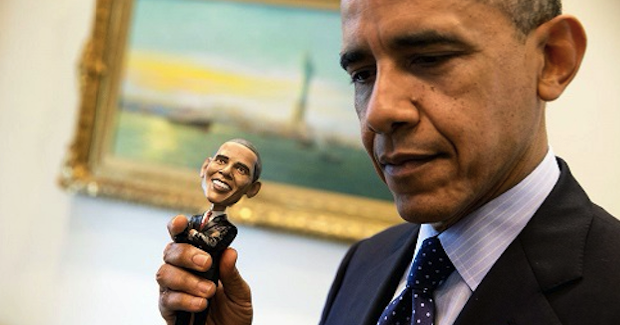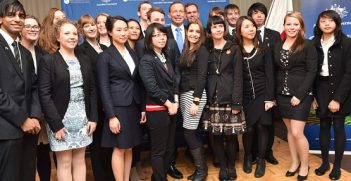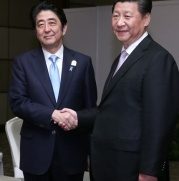G20: Will it Evade the Big Decisions?

The European Commission’s ruling this week that Ireland should collect €13 billion in unpaid taxes from Apple may galvanise support for global action on tax evasion at the G20. However, this is just one prickly issue of many. The South China Sea issue may be raised by the US and Chinese concerns about attitudes towards their own foreign investment may also get a run, embroiling Australia. Will the G20 evade the big decisions?
By any yardstick, the G20 is the new kid on the block so far as international organisations are concerned. Formed at the turn of this century, it links the world’s 20 largest economies. Still a teenager, it has yet to prove its worth.
The upcoming meeting of G20 leaders at Hangzhou, China will be the 11th and could be its most challenging and difficult. Generally the sherpas (the high-ranking government officials who draft the communique) are likely to water down any controversy to the usual generalities.
The Hangzhou meeting on 4-5 September could be a little different. Hosting a G20 summit in China for the first time, President Xi Jinping has cleared the polluted air over this attractive regional capital through the simple expedient of shutting down many of the factories. Nonetheless, the temperature of discussions is likely to rise, because so many of the hot issues involve the host country itself, and particularly its relationship with the United States and also Australia.
President Barack Obama will be attending his last major global summit and saying his farewells. It would be surprising if he did not take a parting shot at his host if only to reiterate America’s disappointment at China’s refusal to accept, or even consider, the verdict of the Permanent Court of Arbitration in The Hague.
Yet Obama and Xi have managed to remain on reasonably good terms whenever they have met. The ghosts in the room will, of course, be Donald Trump and Hillary Clinton. One or the other will be at the next G20 leaders’ meeting in Hamburg; if they keep their election promises, they will have instigated trade restrictions. These will be directed toward China but will also damage at least half of the G20 countries.
To date, the commitment to free trade has been the sine qua non of all G20 (and G7 and G8) communiques and is likely to feature again at this meeting. Obama is still pleading with congress to ratify his bill enabling the Trans-Pacific Partnership (TPP) but time is running out. Clinton, who once championed the TPP, has turned against it and is now as protectionist as Nick Xenophon.
These festering frictions on trade may end up being swept under the thick carpets of the meeting rooms, but there are two other economic issues that are capable of creating disunity.
Chinese foreign investment
The first is Chinese foreign investment. Two newcomers to the G20, United Kingdom Prime Minister Theresa May and Australian Prime Minister Malcolm Turnbull, are both are in China’s bad books. This is after putting a block, very late in the process, on Chinese investment in electricity supply infrastructure.
In May’s case, it was a reluctance to be bounced into a deal done by her predecessor, David Cameron, which involved part-financing by a Chinese state-owned enterprise of a new A$38 billion nuclear power station to be constructed by a French state utility. The deal, the piece de resistance of a visit to Britain by China’s President, was put on hold by Theresa May on the very eve of the formal signing ceremony. More recently, the Turnbull government vetoed a plan by New South Wales to lease its poles and wires to either a Chinese state-owned company or a Hong Kong multinational.
Both decisions were a reaction against Chinese foreign investment based mainly on security grounds but also because there are very limited opportunities for foreign investors in China. Of the G20 countries, China remains the most closed to foreign investment according to David Dollar, a senior fellow at the Brookings Institution in Washington: “This creates an unfairness in which Chinese firms prosper behind protectionist walls and expand into more open markets such as the US.”
In Hangzhou, we can expect China to respond to this criticism by opening more doors to foreign investment, while continuing to attack the British and Australian decisions.
International tax evasion
The other area of difficulty for G20 will be tax. In November 2014, Tony Abbott hosted the Brisbane G20 and gained some support for a movement to reform international company taxation practice which allows multinationals to use transfer pricing and profit shifting to minimise tax. The G20 and the OECD agreed to work together on implementing the initiative called Project BEPS (base erosion and profit shifting).
Subsequently, multinationals including Apple, Google and Microsoft were hauled before a Senate committee to account for the small amount of tax they paid in Australia. The Australia Labor Party campaigned for big companies to pay their rightful share of the tax burden, while the Coalition supported an international operation run by the OECD to achieve the same result. The government has been reluctant to bring forward proposals in the absence of an OECD solution, which is anticipated later this year or in 2017. So far, 82 jurisdictions have signed up to the BEPS initiative, with Hong Kong, Singapore and a swathe of emerging economies joining recently, though not yet Malaysia and Thailand.
Some countries have already toughened up on taxation of multinationals, creating serious conflict that is likely to spill over into the Hangzhou meeting. The European Union has demanded that Apple, the world’s biggest company, repays €13 billion (A$19 billion) of tax relief it has had as a result of a “sweetheart” deal with the Irish government. Ireland, of course, is an EU member. In Australia, for example, Apple reduces its tax liability by shifting a large proportion of its earnings through Ireland.
Thus the European Commission is starting to look more effective than both the G20 and the OECD at extracting tax from multinationals that pay low corporation taxes. The US is furious about the interference in what was a legal agreement between Ireland and Apple, and is sure to raise it in Hangzhou. This alone may galvanise the leaders of the G20 to push for the implementation of an effective agreement on global tax reform. However, two days in China is unlikely to settle it.
Colin Chapman is a writer, broadcaster and public speaker who specialises in geopolitics, international economics and global media issues. He is the immediate past president of AIIA NSW. This article is published under a Creative Commons Licence and may be republished with attribution.





